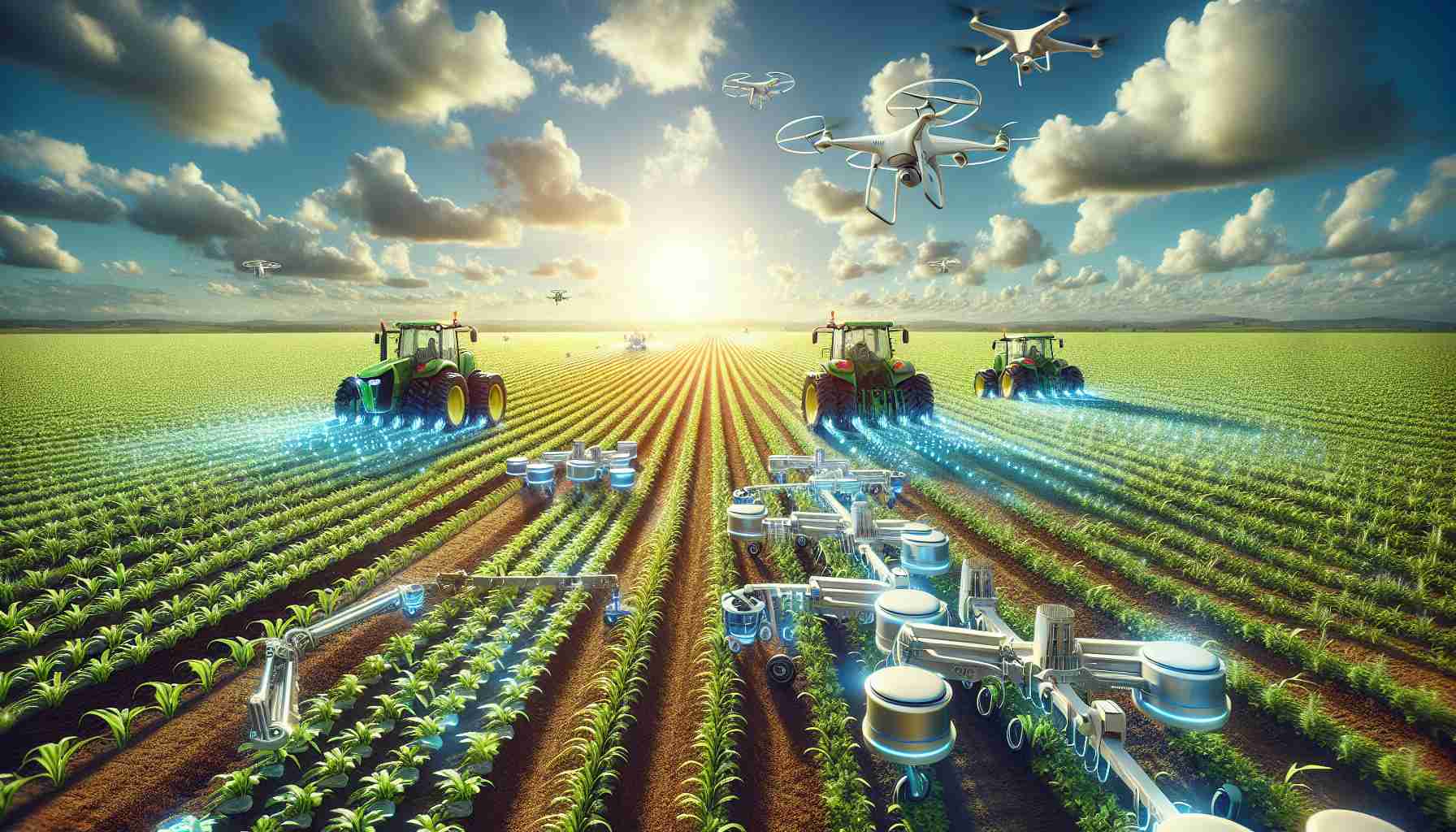The integration of artificial intelligence (AI) into agriculture marks a significant shift towards more efficient, sustainable, and smart farming practices. By leveraging AI technologies, farmers can make more precise and rapid decisions with the help of data analysis, predictive modeling, and automation. These advancements not only contribute to increased agricultural productivity but also ensure the more effective utilization of resources.
Through the early detection and management of plant diseases and pests facilitated by AI, farmers can expedite intervention processes. Similarly, AI applications are revolutionizing various facets of agriculture. One notable example includes precision agriculture, which relies on sensors and drones to collect and analyze field data. This approach optimizes farming processes by tailoring them to the specific needs of a plot of land.
AI also plays a crucial role in forecasting weather conditions, managing irrigation systems, and analyzing soil quality. Such tools empower farmers to produce higher yields at lower costs—a milestone in maximizing efficiency and sustainability.
The potential for AI in agriculture extends into the future, with advanced algorithms opening the door to more comprehensive research on plant genetics and productivity. Smart farming platforms exemplify the current AI applications in the sector. These platforms offer real-time monitoring and analysis of agricultural data, allowing for informed decision-making.
As technology continues to permeate all aspects of life, its judicious deployment in the realm of agriculture will carry significant benefits. AI is undeniably growing into one of the key instruments driving agriculture towards a smarter and more sustainable future, embracing the wave of technological transformation sweeping across various industries.
Important Questions & Answers
1. What are the ethical concerns related to the use of AI in agriculture?
Issues include potential job displacement due to automation, the impact of data ownership on farmer privacy and sovereignty, and the reliance on high-tech solutions that may be inaccessible for small-scale or resource-poor farmers.
2. How can AI contribute to sustainable agricultural practices?
AI enables more efficient use of resources such as water, soil amendments, and energy by optimizing irrigation schedules, nutrient application, and planting times. It also supports integrated pest management and disease detection, which can reduce the overuse of chemical pesticides and fertilizers.
3. What are the challenges in adopting AI technologies in agriculture?
Challenges include the high costs of implementation, the need for digital infrastructure, technical knowledge requirements, and adaptation to diverse and changing environmental conditions. There’s also a perceived risk among farmers regarding the dependability and accuracy of AI systems.
Advantages
– Increased Efficiency: AI-driven automation can lead to faster and more accurate task completion, such as planting and harvesting.
– Precision Agriculture: AI helps in fine-tuning agricultural operations, resulting in minimization of waste and improvement in crop yields.
– Resource Management: Optimized irrigation systems and soil nutrient management contribute to conservation of water and reduction of environmental impact.
– Data-Driven Insights: Farmers gain deeper insights into crop health and field conditions, leading to informed decision-making.
– Climate Resilience: Predictive analytics can assist in preparing for extreme weather events, helping to safeguard crops and reduce losses.
Disadvantages
– Cost: Implementation of AI in agriculture can be expensive, creating a barrier for small-scale farmers.
– Technical Barrier: The complexity of AI systems requires technical expertise that may not be readily available to all farmers.
– Data Privacy: Collecting and processing large amounts of data raises concerns about ownership and privacy of information.
– Dependence on Technology: Overreliance on AI could make farming vulnerable to technological failures or cyber-attacks.
Key Challenges or Controversies
– Accessibility: Ensuring that AI technologies are accessible to farmers of varying scales and economic backgrounds is a significant challenge.
– Autonomy: The concern that AI could diminish the role and expertise of farmers, leading to a loss of traditional agricultural knowledge and practices.
– Data Control: The monopoly over agricultural data by a few large corporations could lead to unfair practices and exploitation.
– Job Displacement: AI and automation could displace workers, leading to social and economic repercussions within rural communities.
If you’re interested in the broader impact and implications of AI in various sectors, including agriculture, visit the following domains:
– For insights on AI and its applications: DeepMind
– For international policy and guidelines on AI: OECD
– For agriculture-specific innovations and news: Agriculture.com
– For global discussions on food and agriculture sustainability: FAO
– For cutting-edge AI research and publications: AI for Good
The transformative power of AI in modern agriculture intertwines with numerous fields robustly expanding capabilities while demanding careful consideration of the accompanying socioeconomic and ethical implications.

